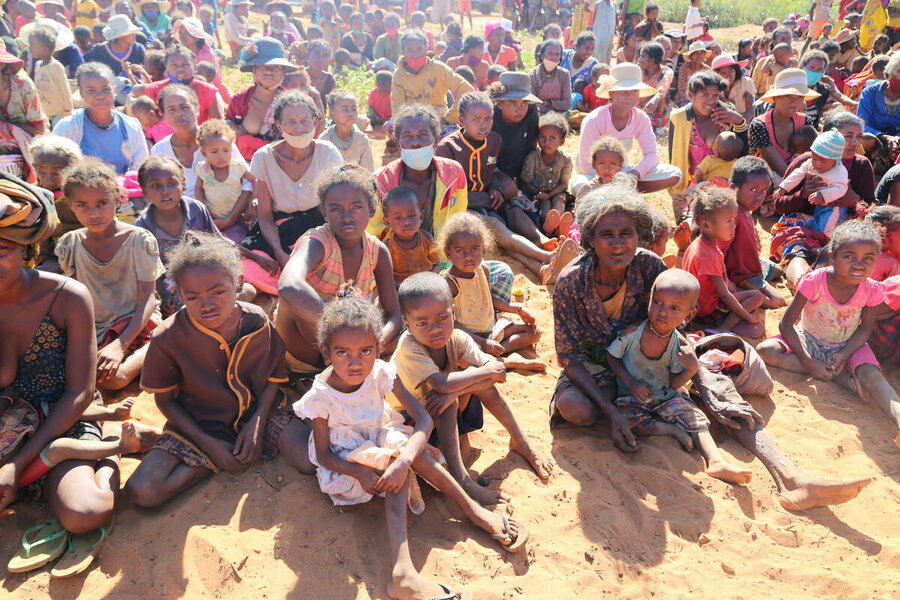How changing the way we think about food can help end hunger
When I was eight years old, a severe drought devastated my small village in Zimbabwe. A blistering heatwave dried up our river; it destroyed our crops, killed our livestock and left us starving. One day I was so weak from hunger that I collapsed onto the ground. In fact, in my young mind, I thought I was going to die. Fortunately, a fellow African who worked for the United Nations found me. She gave me a bowl of porridge and saved my life.
Several decades later, it is unfathomable that hunger, the very same issue that almost took my life, remains rampant. Even as we grow enough food to feed everyone as a society, one in nine people still goes to bed hungry every night, and malnutrition remains the leading cause of death and illness globally. So, how else might we solve global hunger? Beyond addressing conflict and other structural and systemic root causes, we need to change the way we think of food – not as a commodity, but as a fundamental human right – and, as a consequence, change the way we produce and consume it.
During my childhood in the early eighties, famine was primarily perceived as an 'African problem'. Today, hunger and malnutrition continue to disproportionately impact the African continent as well as developing countries that bear the brunt of the effects of climate change. Droughts – like the one that hit my own community – and other extreme weather events such as floods, storms and heatwaves, increasingly threaten lives and livelihoods. But the countries most affected by these phenomena are the ones that contribute the least towards the greenhouse emissions at that cause them.

Then there is food waste. One third of the food produced for human consumption is either lost due to poor storage or wasted at the consumer end in rich countries — when food goes uneaten or is left to spoil in fridges and kitchen cabinets. Food wastage is the third-largest producer of carbon dioxide in the world after the USA and China, further compounding the effects of climate change on communities in the developing world.
Today, the United Nations is convening the first ever Food Systems Summit in New York City as part of the Decade of Action to achieve the Sustainable Development Goals (SDGs). The Summit will launch bold new actions to deliver progress on all 17 SDGs, each of which relies to some degree on healthier, more sustainable and equitable food systems. This is particularly relevant for SDG2, which aims to reach a zero-hunger world and put an end to malnutrition. To get there, we need collective action to transform our food systems, that is the complex set of actors and processes that ensure food reaches our tables.
To end hunger, we need to stop considering it someone else’s problem: this is a shared responsibility requiring global solidarity in both developed and developing nations. The equation is simple, if we are all part of creating the problem in the first place, then we must all be part of the solution.
Now more than ever, we are seeing that our individual actions and behaviors can indeed impact the lives of others in different parts of the world. This understanding shaped my upbringing and lies at the heart of the ancient African wisdom of Ubuntu – 'I am because we are.' Ubuntu recognizes that we are all part of a greater whole, connected to each other by our shared humanity – the very same shared humanity that helped to save my own life. This wisdom acknowledges that our happiness and suffering are closely linked to the happiness and suffering of others - thus, what impacts one of us will eventually impact all of us in various ways. And most notably, that our ability to overcome any challenge requires all of us to work together as a global community.
